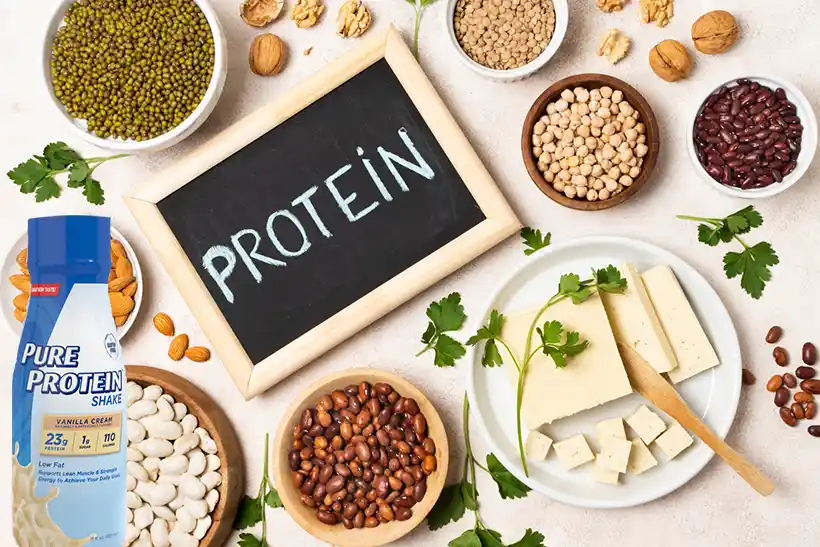Introduction
Welcome to WellHealthOrganic.com, your holistic hub for nutritious living. Whether you’re a dedicated vegetarian or simply seeking to incorporate more plant-based options into your diet, understanding the wealth of vegetarian protein sources available is essential for maintaining optimal health. In this comprehensive guide, we’ll journey through a diverse array of plant-based foods that can nourish your body and support your well-being, ensuring you thrive on your vegetarian journey.
The Vital Role of Protein in a Vegetarian Diet
Protein serves as the building blocks for cells, tissues, and muscles in the body, making it an essential nutrient for overall health. While animal products are often associated with protein, a well-planned vegetarian diet can provide all the protein your body needs to thrive. By incorporating a variety of plant-based protein sources into your meals, you can enjoy a balanced and nutritious diet without the need for meat or fish.
Exploring Vegetarian Protein Sources
- Legumes: Beans, lentils, and chickpeas are nutritional powerhouses, packed with protein, fiber, and essential nutrients. From hearty bean soups to creamy lentil curries, legumes offer endless possibilities for delicious and satisfying vegetarian meals.
- Tofu and Tempeh: Derived from soybeans, tofu and tempeh are versatile protein sources that can be used in a wide range of dishes. Whether grilled, stir-fried, or baked, these soy-based products add texture and flavor to stir-fries, salads, and sandwiches.
- Quinoa: As a complete protein, quinoa contains all nine essential amino acids, making it an ideal choice for vegetarians. This gluten-free grain can be enjoyed as a base for grain bowls, tossed into salads, or used to stuff vegetables for a nutritious meal.
- Seeds: Chia seeds, hemp seeds, flaxseeds, and pumpkin seeds are rich in protein, healthy fats, and essential nutrients. Sprinkle them on top of yogurt, oatmeal, or salads for a crunchy and nutritious boost.
- Nuts: Almonds, walnuts, and cashews are not only delicious but also excellent sources of protein, healthy fats, and antioxidants. Enjoy them as a snack, add them to granola or trail mix, or use them to make creamy nut butters.
- Soy Products: Edamame, soy milk, and meat substitutes are all great sources of protein derived from soybeans. Whether steamed, blended into smoothies, or used in place of meat in recipes, soy products offer a versatile and nutritious option for vegetarians.
- Whole Grains: Brown rice, barley, oats, and farro are nutritious whole grains that provide protein, fiber, and essential nutrients. Use them as a base for salads, stir-fries, or pilafs to add substance and flavor to your meals.
- Leafy Greens: While not as protein-rich as other sources, leafy greens like spinach, kale, and Swiss chard still contribute valuable protein, along with vitamins, minerals, and antioxidants. Incorporate them into salads, soups, or smoothies for added nutrition.
Incorporating Vegetarian Protein Sources into Your Diet
- Meal Planning: Plan balanced meals that include a variety of protein-rich plant foods to ensure you meet your nutritional needs.
- Recipe Inspiration: Explore vegetarian recipes that highlight different protein sources, from hearty bean chili to tofu stir-fries and quinoa salads.
- Snack Smart: Keep protein-rich snacks like roasted chickpeas, nut butter, or Greek yogurt on hand for convenient and satisfying munching.
- Supplementation: Consider adding protein supplements like pea protein or hemp protein powder to your diet if needed, especially for athletes or those with increased protein requirements.
Tofu, Tempeh, and Edamame: Soybean Superstars
Soybeans take center stage in the world of plant-based protein, offering a trifecta of nutritious options: tofu, tempeh, and edamame. Tofu, with its soft and silky texture, serves as a canvas for a myriad of flavors, making it a staple in countless vegetarian and vegan dishes. Tempeh, on the other hand, boasts a firmer texture and nutty flavor profile, making it ideal for grilling, stir-frying, or crumbling into chili and tacos. Meanwhile, edamame, young soybeans in their pods, serve as a delightful snack or a vibrant addition to salads and stir-fries. Rich in protein, iron, and calcium, these soybean superstars are essential components of a well-rounded vegetarian diet.
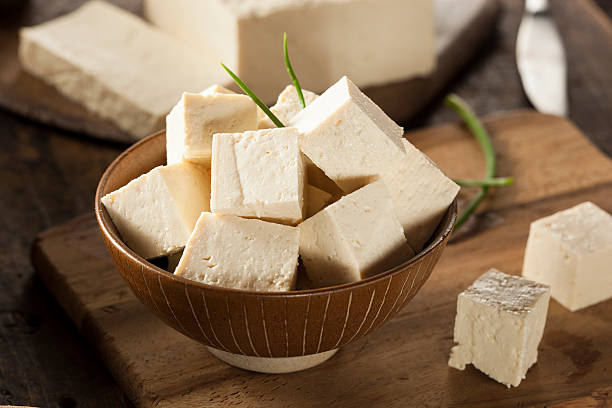
Lentils: The Versatile Legume
When it comes to versatility, lentils reign supreme in the realm of legumes. Whether you prefer red, green, or brown varieties, these tiny legumes pack a nutritional punch with each bite. With a robust flavor and hearty texture, lentils lend themselves well to soups, stews, salads, and curries, offering a substantial dose of protein along with fiber, folate, and other essential nutrients. Explore our collection of lentil-based recipes on WellHealthOrganic.com and discover creative ways to incorporate this powerhouse ingredient into your meal rotation.
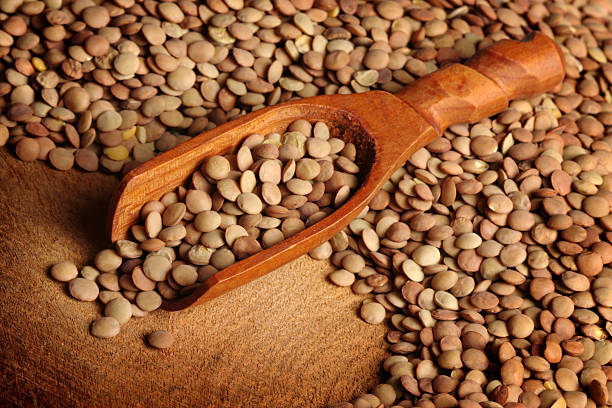
Beans: A Protein-Rich Pantry Staple
No vegetarian pantry is complete without an assortment of beans, and for good reason. Kidney beans, black beans, navy beans—each variety brings its own unique flavor and texture to the table, while offering a substantial source of plant-based protein. Whether you’re whipping up a batch of hearty chili, crafting veggie-packed salads, or molding flavorful bean burgers, beans serve as a versatile canvas for culinary creativity. Packed with protein, fiber, and an array of vitamins and minerals, beans are a must-have for anyone looking to nourish their body with wholesome, plant-based fare.
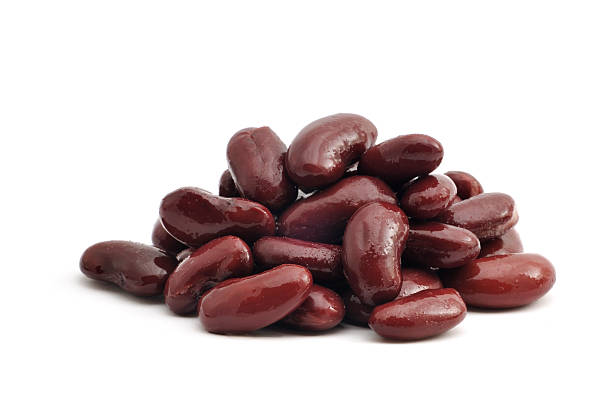
Chickpeas (Garbanzo Beans): The Mediterranean Marvel
Hailing from the Mediterranean region, chickpeas, also known as garbanzo beans, are a nutritional powerhouse beloved for their versatility and taste. Whether mashed into creamy hummus, crisped into golden falafel, or tossed into vibrant salads, chickpeas add a satisfying dose of protein, fiber, and flavor to any dish. Rich in folate, iron, and manganese, these legumes boast an impressive nutritional profile that supports overall health and well-being. Explore our collection of chickpea-centric recipes on WellHealthOrganic.com and elevate your culinary repertoire with the Mediterranean marvel that is chickpeas.
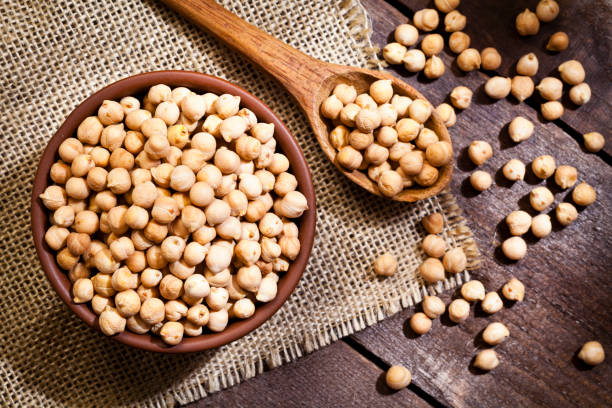
Quinoa: The Complete Protein
Quinoa, often hailed as a superfood, is a complete protein, meaning it contains all nine essential amino acids that the body cannot produce on its own. Native to the Andean region of South America, quinoa boasts a nutty flavor and delicate texture that pairs well with a variety of dishes. Whether served as a fluffy side dish, tossed into salads, or used as a base for hearty grain bowls, quinoa offers a nutrient-rich foundation for plant-based meals. Packed with protein, fiber, and essential nutrients like magnesium and iron, quinoa is a valuable addition to any vegetarian diet.

Nuts: Nature’s Nutrient-Dense Snack
In addition to being a convenient and satisfying snack, nuts are a nutrient-dense source of plant-based protein, healthy fats, and an array of vitamins and minerals. Almonds, peanuts, pistachios, cashews—each nut variety brings its own unique flavor profile and nutritional benefits to the table. Whether enjoyed on their own, sprinkled over salads, or blended into creamy nut butters, nuts are a versatile ingredient that adds texture, flavor, and nutritional value to a wide range of dishes. Explore our selection of nut-based recipes on WellHealthOrganic.com and harness the power of nuts to fuel your plant-based lifestyle.
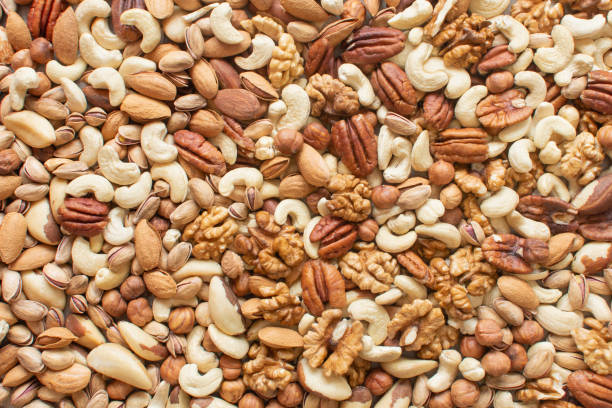
Common Vegetarian Protein Sources In Indian Households
1. Legumes: Beans, Lentils, and Peas
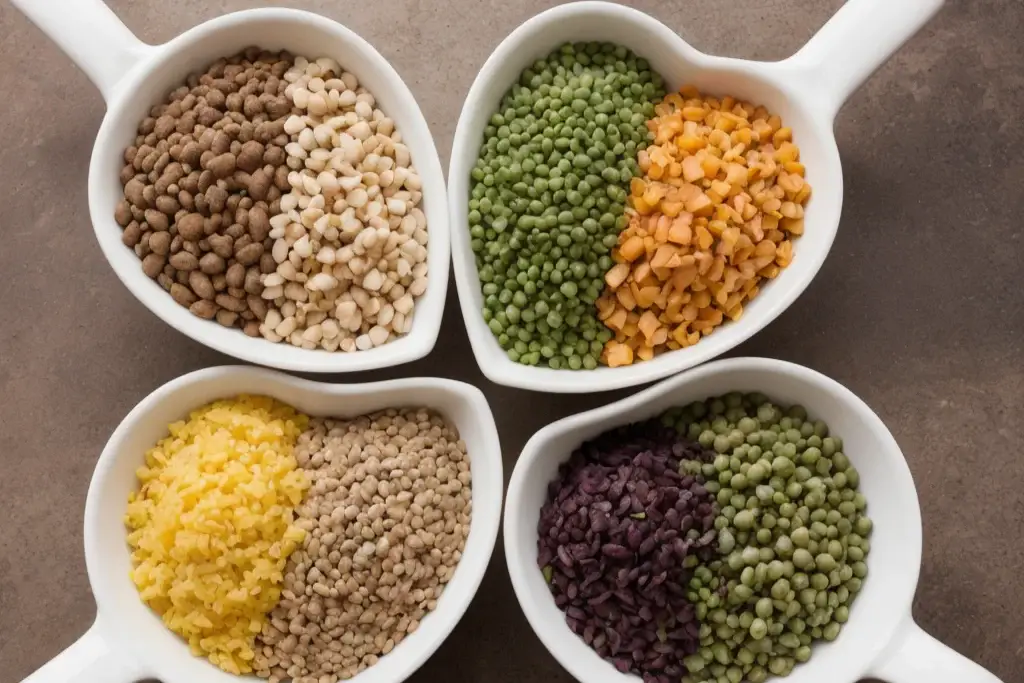
Legumes are a powerhouse of protein, fiber, and various nutrients.
Research published in the Journal of the Academy of Nutrition and Dietetics highlights legumes as not only a rich source of protein but also beneficial for our heart health and diabetes prevention.
Nutritional Profile of Common Indian Legumes: Vegetarian Protein Sources
| Item | Protein Content (per 100g) | Calories (per 100g) | Fiber Content (per 100g) | Important Micronutrient |
|---|---|---|---|---|
| Kidney Beans | 8.9g | 127 | 6.4g | Folate |
| Black Gram | 25g | 341 | 4.8g | Iron |
| Green Peas | 5g | 81 | 5.1g | Vitamin C |
| Chickpeas | 19g | 364 | 17g | Iron |
| Mung Beans | 24g | 347 | 16.3g | Folate |
| Red Lentils | 26g | 116 | 7.9g | Folate |
| Soybeans | 36g | 446 | 9.3g | Iron |
2. Quinoa: The Complete Protein
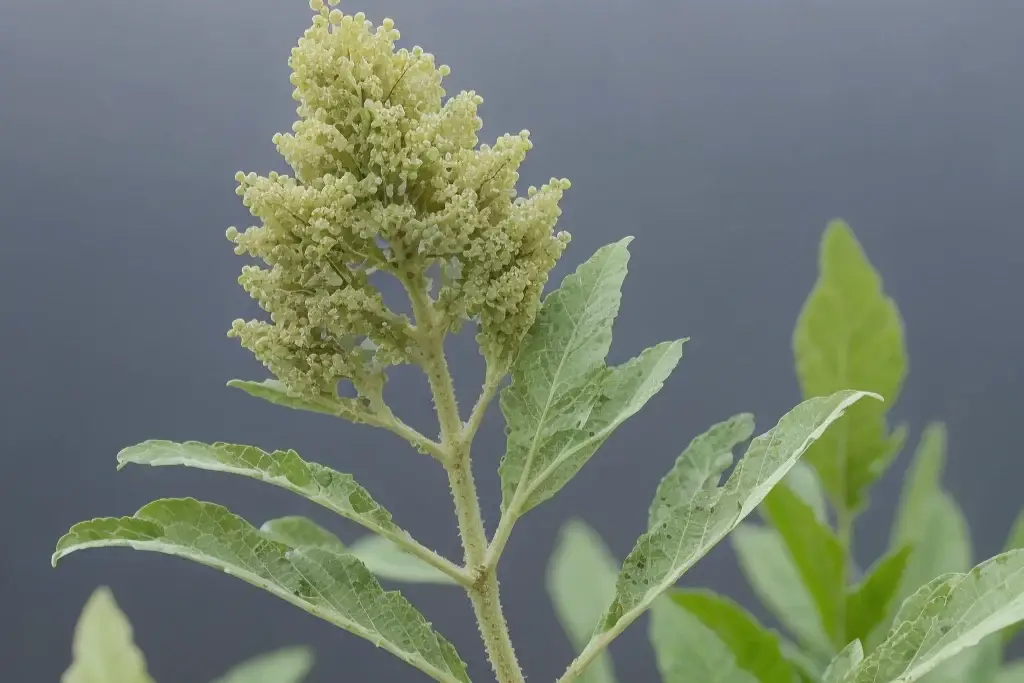
Unlike many plant proteins, quinoa seeds are considered a complete protein, containing all nine essential amino acids.
A study in the Journal of Current Opinion in Food Science points out quinoa’s protein quality and its role in improving the nutritional content of a vegetarian diet.
Nutritional Content of Quinoa: Vegetarian Protein Sources
| Nutrient | Amount per 100g |
|---|---|
| Protein | 4.4g |
| Calories | 120 |
| Fiber | 2.8g |
| Magnesium | 64mg |
| Iron | 1.5mg |
| Calcium | 17 mg |
3. Nuts and Seeds: Compact Nutrient Dynamos
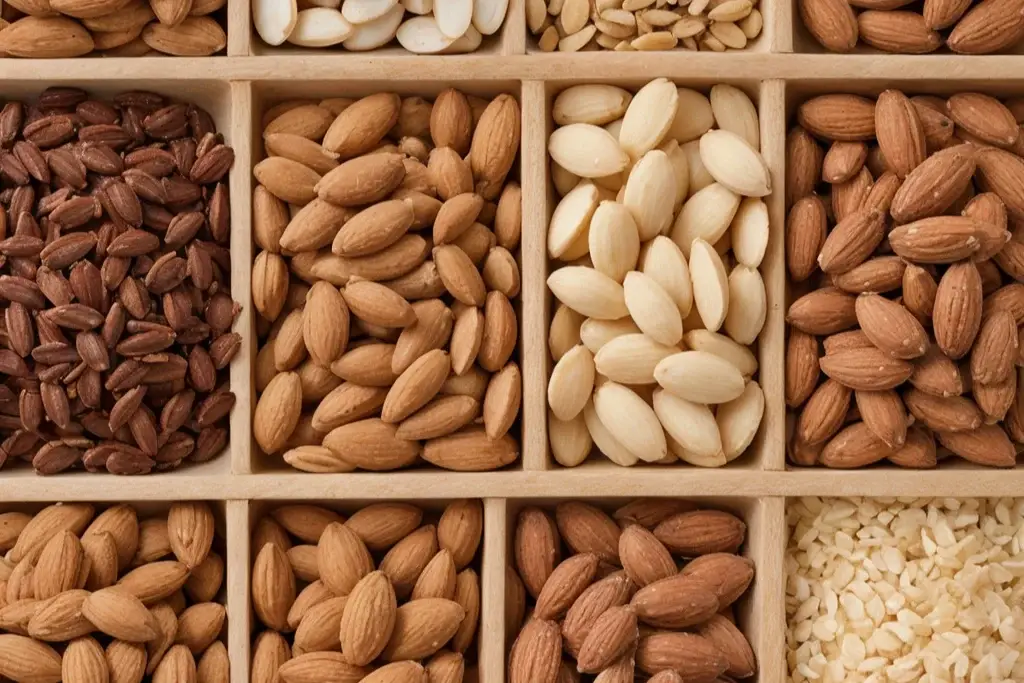
Nuts and seeds are not only protein-rich but also provide healthy fats, vitamins, and minerals. Almonds, for example, offer around 6 grams of protein per ounce.
The Americal diabetes association notes that incorporating nuts into your diet can lower the risk of cardiovascular disease.
Nutritional and Health Benefits of Common Nuts and Seeds: Vegetarian Protein Sources
| Nut/Seed Type | Protein Content per 100g | Health Benefits |
|---|---|---|
| Almonds | 21.4g | High in Vitamin E, reduces heart disease risk |
| Walnuts | 14.6g | Rich in Omega-3, supports brain health |
| Pistachios | 20.5g | Lowers LDL cholesterol, good for heart health |
| Cashews | 17.4g | Magnesium-rich supports heart and liver health |
| Flaxseeds | 18g | High in Omega-3 fatty acids, anti-inflammatory |
| Pumpkin Seeds | 30g | Magnesium-rich, supports heart and liver health |
| Chia Seeds | 17g | High in fiber, promotes weight management |
4. Soy Products: Tofu, Tempeh, and Edamame
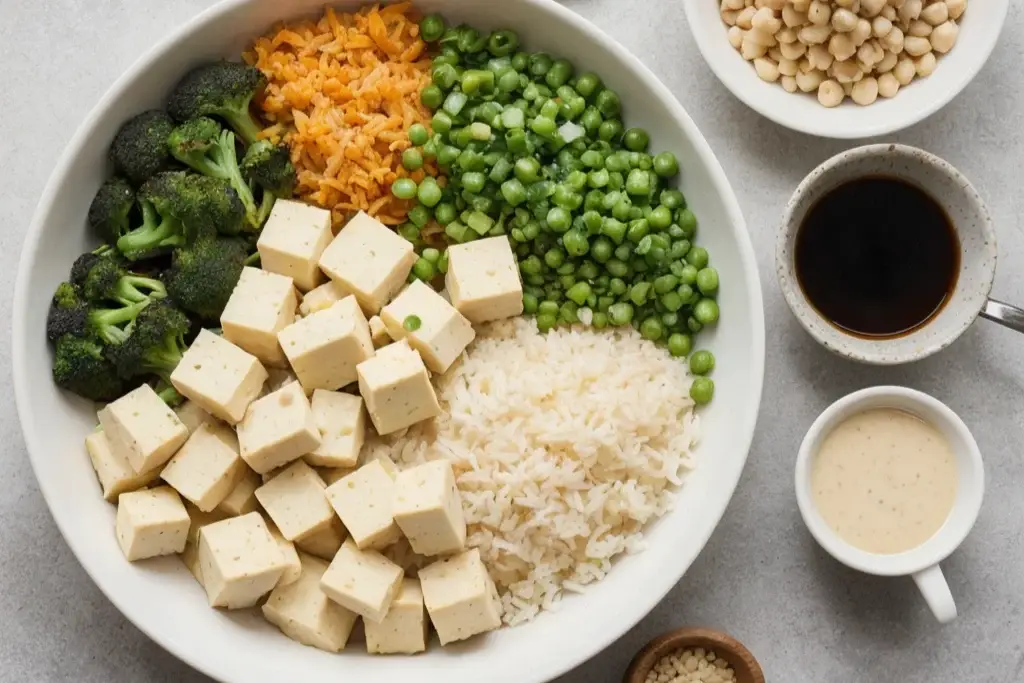
Soy products are versatile, high in protein, and can be great meat substitutes. Tofu, for instance, packs about 10 grams of protein per half-cup serving.
A report published in the American Journal of Clinical Nutrition supports soy’s role in a healthy vegetarian diet, emphasizing its nutritional benefits and versatility.
Wellhealthorganic Vegetarian Protein Sources:
Nutritional Profile and Benefits of Common Soy Products: Vegetarian Protein Sources
| Soy Product | Protein Content per 100g | Calories per 100g | Key Nutrients | Dietary Benefits |
|---|---|---|---|---|
| Tofu | 17g | 144 | High in calcium and iron | Supports bone health, good for heart health |
| Tempeh | 20g | 192 | Rich in protein and fiber | Aids digestive health, beneficial for muscle growth |
| Edamame | 12g | 121 | High in fiber, vitamin K, folate | Lowers cholesterol, may help in blood pressure management |
5. Dairy Products: Cheese, Yogurt, and Milk
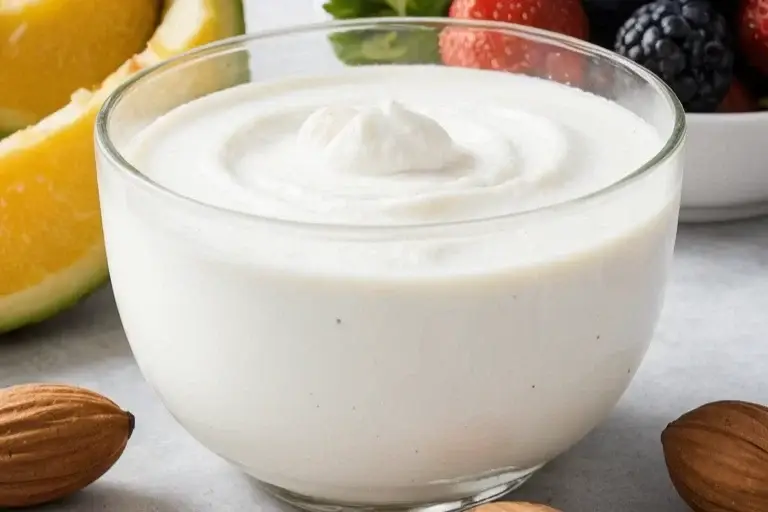
For lacto-vegetarians, dairy products are a significant protein source. Greek yogurt can contain up to 20 grams of protein per cup.
Research published in the journal Nutrients outlines the role of dairy in providing high-quality protein and essential nutrients.
Nutritional Profile of Common Dairy Products: Cheese, Yogurt, Buffalo Milk, Cow Milk and Goat Milk: Vegetarian Protein Sources
| Dairy Product | Protein Content per 100g | Calories per 100g | Key Nutrients | Health Benefits |
|---|---|---|---|---|
| Cheese | 25g | 429 | High in calcium, phosphorus, Vitamin B12 | Supports bone health, and may lower blood pressure |
| Yogurt | 3.5g | 61 | Rich in calcium, probiotics, Vitamin B2, Vitamin B12 | Supports digestive health, boosts immune system |
| Buffalo Milk | 4.3g | 117 | Higher in fat, calcium, and protein than cow milk | Supports bone strength, more beneficial for growth |
| Cow Milk | 3.2g | 67 | High in calcium, Vitamin D, potassium, Vitamin B12 | Supports bone health, may lower blood pressure |
| Goat Milk | 3.3g | 72 | High in calcium, phosphorus, and essential fatty acids | Supports digestive health, enhances nutrient absorption, often easier to digest than cow’s milk. |
Conclusion
A vegetarian diet offers a wealth of delicious and nutritious protein sources that can nourish your body and support your health and well-being. By incorporating a variety of plant-based protein sources into your meals, you can enjoy a balanced and satisfying diet that promotes vitality and longevity. For more vegetarian recipes, nutrition tips, and wellness inspiration, visit WellHealthOrganic.com.

